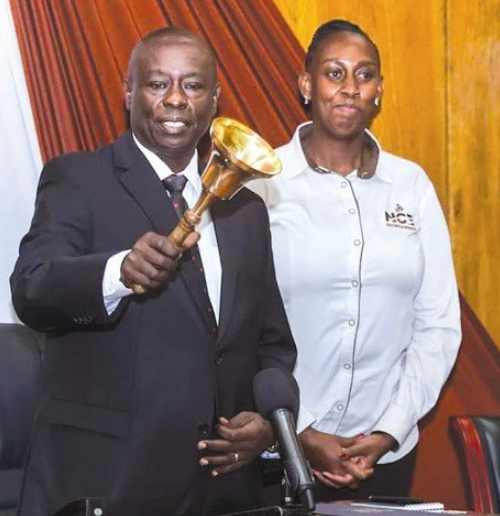According to a report from the Nairobi Coffee Exchange (NCE), coffee farmers have received nearly Sh23 billion through the Direct Settlement System (DSS) over the past year. NCE Chief Executive Lisper Ndung’u confirmed that farmers have been paid Sh22.6 billion via the one-year-old payment system, which is managed by the Co-operative Bank of Kenya.
“The payments made through the system cover the period from August 15, 2023, to Sale 35, conducted on July 3, 2024. Since the system’s implementation, farmers have received payments promptly after coffee sales, and all creditors have been paid,” she stated in a phone interview.
Ndung’u acknowledged that the system faced some challenges along the way but noted that collaboration with stakeholders has ensured its successful implementation.
On August 9, 2023, the Nairobi Coffee Exchange appointed the Co-operative Bank of Kenya as the provider of DSS for coffee value chain participants after each sale in the country. DSS is a technology platform for coffee trading, as stipulated in the new coffee trading regime supervised by the Capital Markets Authority (CMA).
This initiative is among the key recommendations put forth by the Prof. Joseph Kieyah National Task Force on Coffee Sub-Sector Reforms, which was established in 2016 by former President Uhuru Kenyatta.
The Kenya Kwanza Government has been advocating for the implementation of these reforms, which include licensing farmer-led organizations as coffee brokers. Currently, the Capital Markets Authority (CMA) has licensed 16 coffee brokers to operate at the Nairobi Coffee Exchange (NCE).
Bahama Muriithi, Chairman of the Karatina-based Iria-ini Farmers Co-operative Society, confirmed that his farmers have been receiving their proceeds promptly.
“We have been receiving our proceeds seven days after sale is undertaken at the coffee auction. The DSS is a game changer in terms of payment of coffee farmers. Today the majority of farmers are receiving their payment within days stipulated under the trading regulations,” he said.
Muriithi added that the system has contributed to the changing lives of farmers mainly shielding them against exploitation by secondary players in the coffee value chain.
Last month, the Capital Markets Authority (CMA) approved the Nairobi Coffee Exchange Limited Trading Rules, 2024, marking the beginning of a new trading regime with strict penalties for rule violations. In a separate announcement, the NCE reported that coffee farmers earned Sh21 billion from July 2023 to July 2024, driven by strong global demand for clean beans and relatively fair local prices.
Ndung’u noted that despite the challenges faced by the industry during the review period, global consumers continued to demand Kenyan coffee beans. She explained that the overall value of coffee sold also increased significantly, rising from $125,570,487.36 (Sh16.3 billion) to $161,723,014.98 (Sh21 billion), which represents a 28.79 percent increase from the end of July 2023 to the end of July 2024.
“Equally, the prices increased by 13.06 per cent from an average of $178.14 (Sh23,140.386) to $201.40 (Sh26, 161.86) in July 2024 per 50kg.The increase was occasioned by a steady increase in the New York Intercontinental Commodity Exchange (ICE), which works as the benchmark for Arabica coffees,” said Ndung’u.
During the period under review volumes sold through the auction went up as compared to the same cumulative period last year by 12.22 per cent from 521,334 to 585,066 of 60kg bags.
Overall, Ndung’u disclosed, there has been a steady demand for Kenyan coffee in the global market despite the fears that Kenyan Coffee is not available.
“On average the prices have remained relatively fair in the national market compared to the global market hence affecting the overall value realized at this time of the year,” she added. Last August, Deputy President Rigathi Gachagua reopened the Nairobi auction after a two-month recess.
Speaking during the event, the DP reiterated his commitment to ensure the raft of changes in the coffee sub-sector are realised as tasked by the President despite antagonism from some quarters.
Gachagua said measures put in place were slowly bearing fruits but urged farmers to remain patient even as he maintains they have no interests in it.
He said he is aware of brokers keen on sabotaging the reforms process by discouraging potential buyers.
“We have had some saying they will not buy these coffees because of these reforms and that we should revert to the old ways but there is no problem because even if they refuse to buy we are organised, we set some funds and pay farmers,” Gachagua stated.



